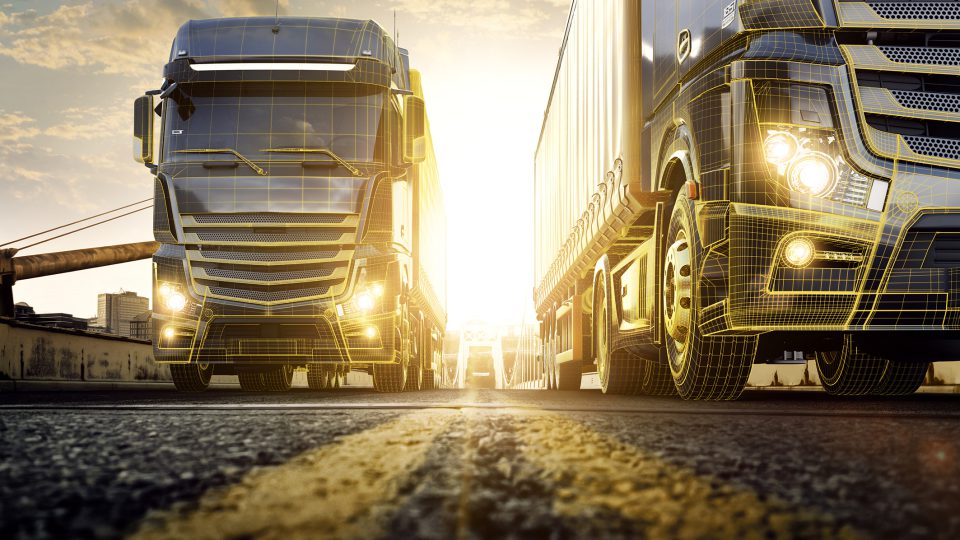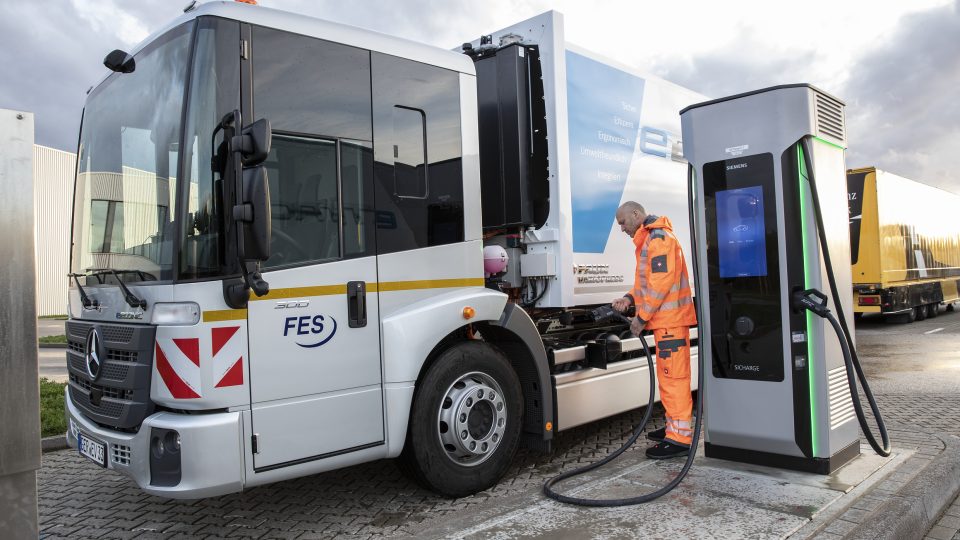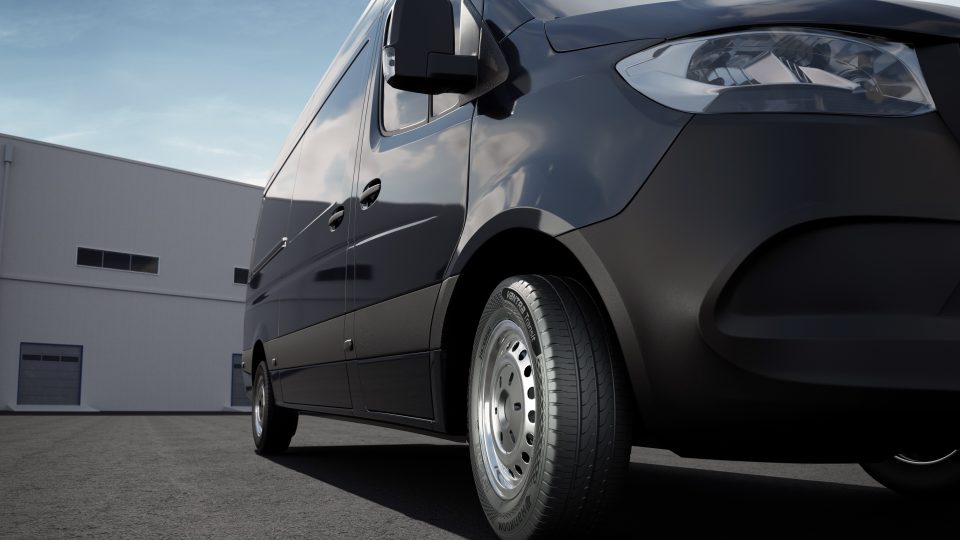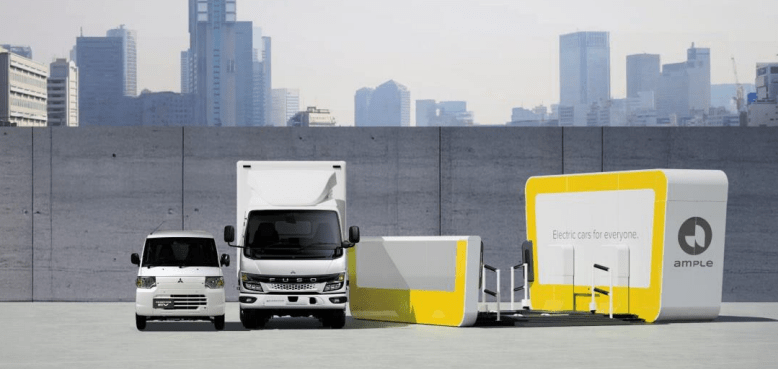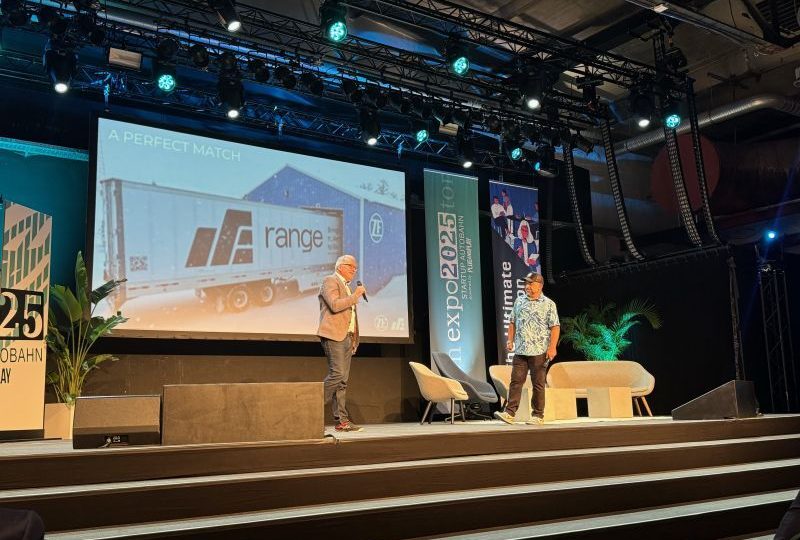Continental gets ready for IAA Transportation: e-truck and trailer solutions and digitalization in the spotlight
The German specialist organized an online event to give some juicy previews of what it will present in a couple of months. And there's plenty to talk about, on the subject of electric trucks, artificial intelligence solutions for trailers, as well as smart tachograph data collection. Here's our report.
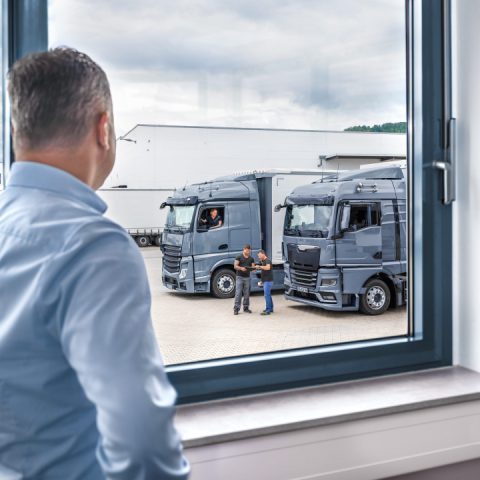
Continental will participate in the 2022 edition of IAA Transportation, next September in Hannover. But this cannot really be considered news. The German specialist, however, has organized an online event to give some juicy previews of what it will present in a couple of months. And there’s plenty to talk about, on the subject of electric trucks, artificial intelligence solutions for trailers, as well as smart tachograph data collection.
Continental at IAA Transportation: tachograph data management
Starting from the tachograph, Continental will introduce the VDO Link concept, a plug-and-play solution allowing tachograph data such as driving times and rest periods to be retrieved and processed in real-time from a distance – without the need for permanently installed telematics modules in the vehicle. “In particular, smaller fleets haven’t been able to make the most of their tachograph data because their vehicles often didn’t have the necessary telematics infrastructure”, explained Marcello Lucarelli, Head of the Connected Commercial Vehicle Solutions business segment at Continental, during the online event held on July 6.
“Data from the tachograph nowadays give the opportunity to automate processes, simplify tasks and even to achieve productivity gains”, added Lucarelli. After plug-and-play installation and successful registration on the VDO Fleet Website, VDO Link sends the collected vehicle and driver data in real time to Continental’s Secure Cloud Backend using a secure mobile connection. Fleet managers will be able to take full advantage of Continental’s compliance services with this real-time connection to the cloud, which gives them an up-to-date overview of the fleet’s status and the current locations of individual vehicles.
Potrebbe interessarti
ContiConnect 2.0: Continental launches the upgrade to its tire management system
E-trucks, the product portfolio and the pantograph project shared with Siemens
According to Continental, the market for electrically powered commercial vehicles is definitely picking up speed. “Unlike the passenger car market, the commercial vehicle sector is still on the starting line for the transition to zero-emission mobility”, explained Ismail Dagli, Head of Smart Mobility at Continental. “However, we can clearly see that the market is picking up speed, despite the significant challenges posed by range and the charging infrastructure. In the future, sustainable drives will also become more critical in the light of ambitious climate change mitigation targets and the continuous increase in freight traffic. This makes it all the more necessary for us to support manufacturers with our extensive portfolio for commercial electric vehicles”.
Continental’s product portfolio for electrically powered commercial vehicles encompasses DC/DC converters and a wide range of control components, including sound modules, intelligent sensors for battery monitoring, battery management systems and charge controllers, high-voltage cables and many more solutions. Also, Continental engineers are working with Siemens Mobility at full speed on another solution – the pantograph for dynamic charging, which means taking power from overhead lines to charge the e-battery while driving. The project is being tested either in Germany or in other European countries.
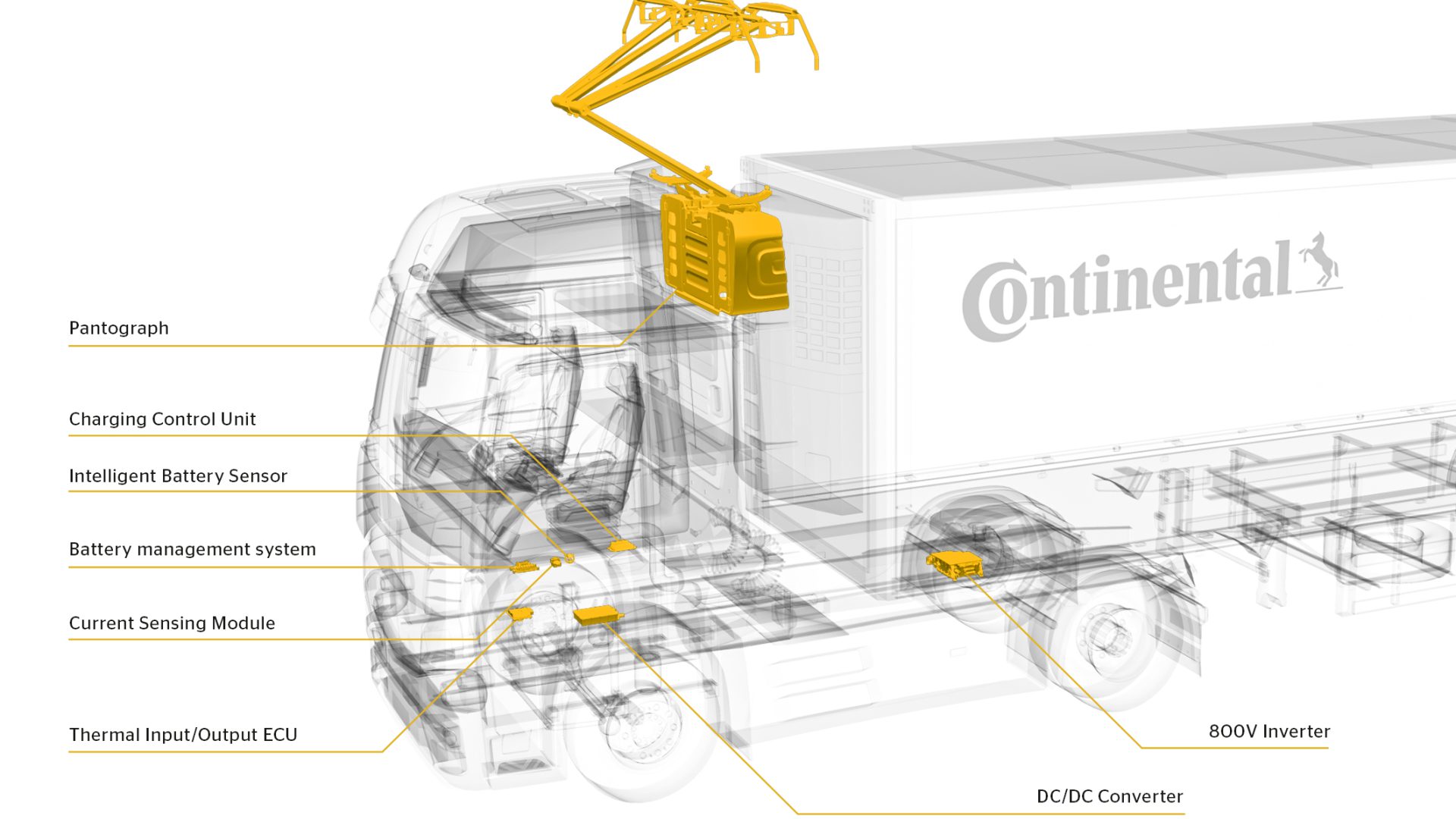
Finally, Continental has developed an AI-based solution for calculating the available cargo space in trucks, semitrailers and trailers. The aim is to provide fleet managers via smartphone with precise digital information on how much cargo can still be loaded. Dispatch tasks can be optimized and routes with reduced loads avoided when used together with the relevant weight data from the smart tachograph or from the fleet management system interface – for example by offering the free cargo space on digital freight exchanges. This, in turn, will help to increase the number of trips with full capacity utilization.
How does the AI-based solution developed by Continental work?
After securing the load, the driver takes a photo of the cargo area in the truck, trailer or semitrailer with a standard smartphone. The photo is then uploaded to the Continental Cloud, where the actual ‘thinking’ takes place – in other words, the calculation of the available cargo space by the AI algorithm developed by Continental. The driver can also use his smartphone to edit the information manually or add additional information before he uploads it to the Secure Cloud. After that, the data can be forwarded to the dispatch software. Good connectivity provided, this process only takes a few seconds. The fleet manager can then optimally coordinate additional loads using the data on the available loading weight, which, for example, he receives from the intelligent tachograph via the VDO Link or via classic telematic software from the FMS interface.
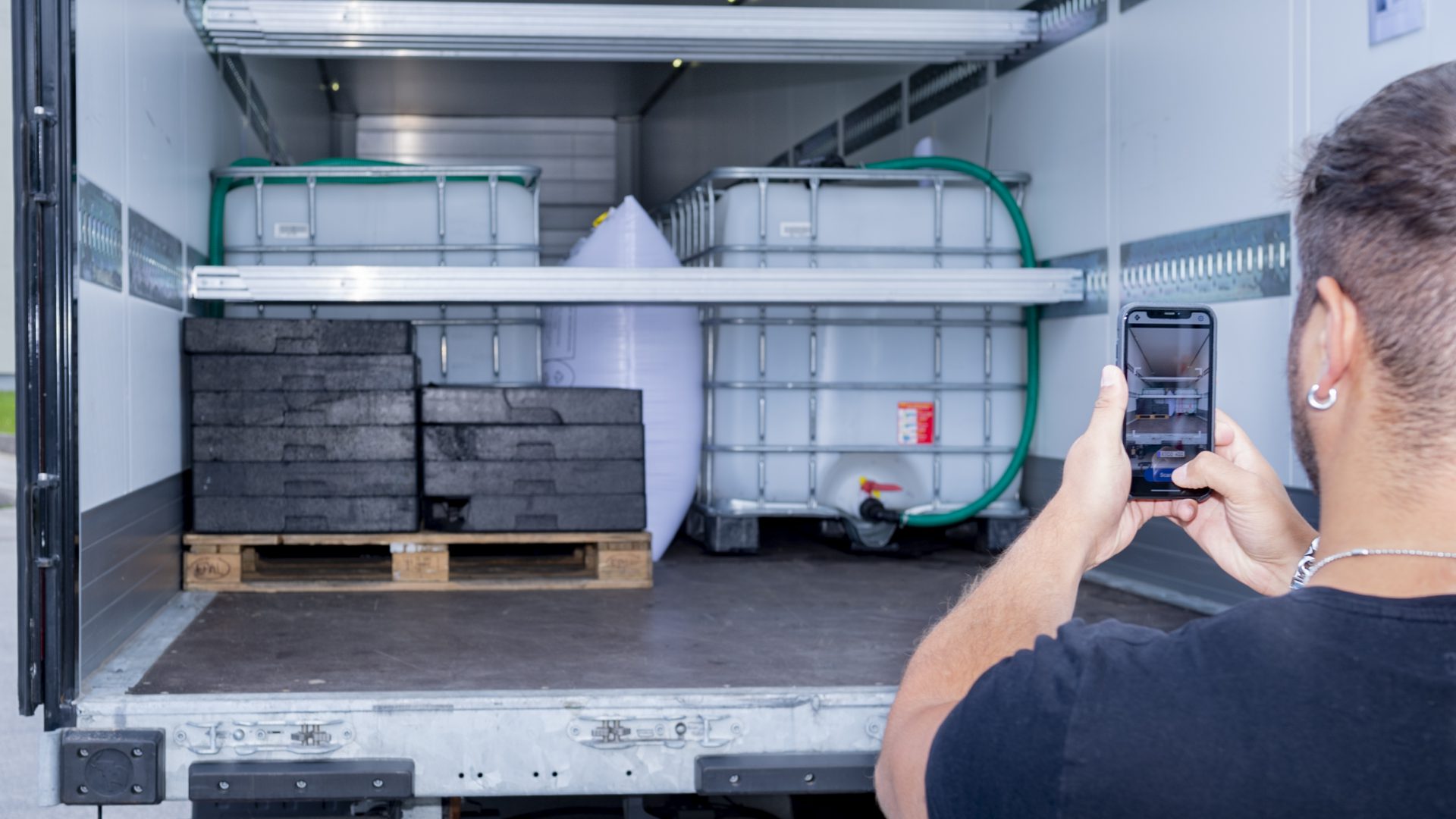
“Technologically, the AI we use is based on the years of experience we’ve gained in many driver assistance and autonomous driving projects”, sums up Jörg Lützner, who is Head of Continental’s Smart Mobility Innovation Management and responsible for the development of the Trailer Capacity Assessment.




